Whether you need a website to make people aware of your products or seek that well-needed boost to improve your business’ sales, web development services are the right way to go.
These services focus on various aspects of a website. They include coding, writing, programming, web design, publishing, and database management. The development industry is expanding gradually as websites contribute significantly to the growth of a business.
Please stick with us as we discuss the various kinds of web development services out there. Also, we will talk about the benefits and essential tips that will help you choose a service that will be the best for your needs, whether it is about websites, eCommerce, or web apps. As mentioned earlier, web developers mainly work on coding and applying logic to make a website easily operable.
Understanding Different Types of Web Solutions
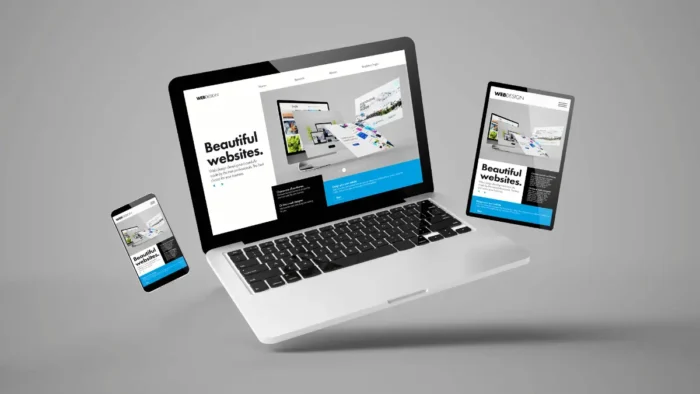
Web development is a field that includes various approaches and technologies. To choose the right type for your business needs, it’s crucial to understand the differences between types of web solutions. Let’s explore some common types of websites:
Static Websites
Static websites are the simplest form of a website, where the content remains fixed and doesn’t change dynamically. Such a web design is built using HTML and CSS and is ideal for companies that don’t require frequent updates.
Static websites are easy to develop and host, making them a cost-effective option. However, they lack interactivity and dynamic features, which may not be right for companies that require frequent content updates or user engagement.
Dynamic Websites

Dynamic websites are designed to provide a highly interactive and engaging user experience. On the other hand, they use server-side scripting languages like PHP, Java, or .NET to generate web pages on the fly.
Dynamic websites can pull data from databases, display personalized content, and provide interactive features like user registration, login systems, and eCommerce functionality. This type of website is suitable for businesses that require frequent updates, personalization, and user engagement.
One of the key advantages of dynamic websites is their ability to adapt to user preferences and behavior. You can enhance user engagement and encourage repeat visits by incorporating dynamic elements such as personalized recommendations, real-time notifications, and interactive forms.
Content Management System (CMS)
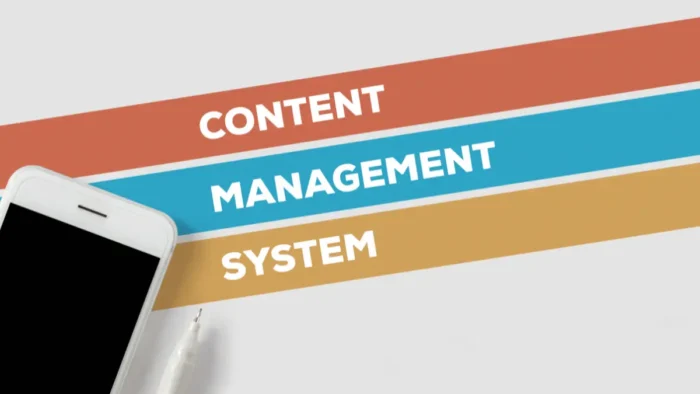
Content Management System (CMS) offers a user-friendly and efficient way to manage website content without the need for extensive coding knowledge. Popular CMS platforms like WordPress, Joomla, and Drupal allow users to easily create, edit, and publish content. They provide a range of pre-built themes, templates, and plugins that allow you to create and customize your websites easily.
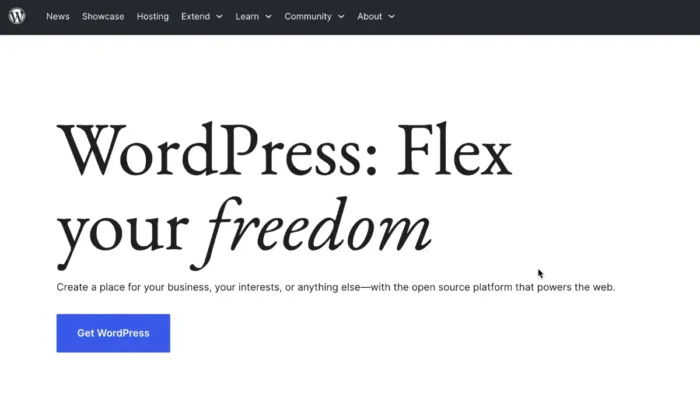
One of the key advantages of using a content management system is the ability to update and edit content in real-time. With a simple and intuitive interface, you can add new pages, update existing content, and publish blog posts without requiring technical assistance from the web development team. This flexibility and ease of use make CMS perfect for companies that need regular content updates or have multiple contributors.
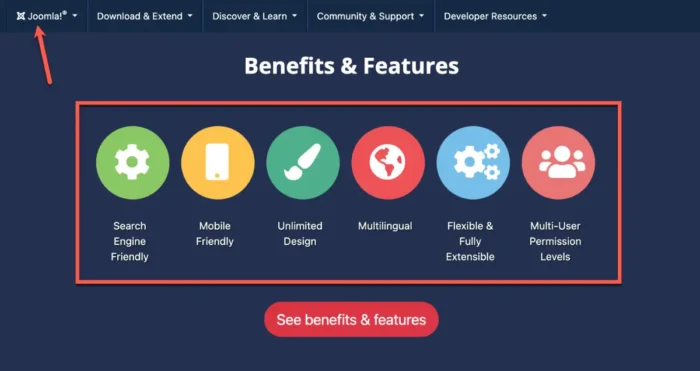
However, CMS does have its limitations. While they provide a convenient way to manage content, they can sometimes be restrictive regarding design flexibility. Customizing the layout and appearance of a website may require additional coding or the use of premium themes and plugins.
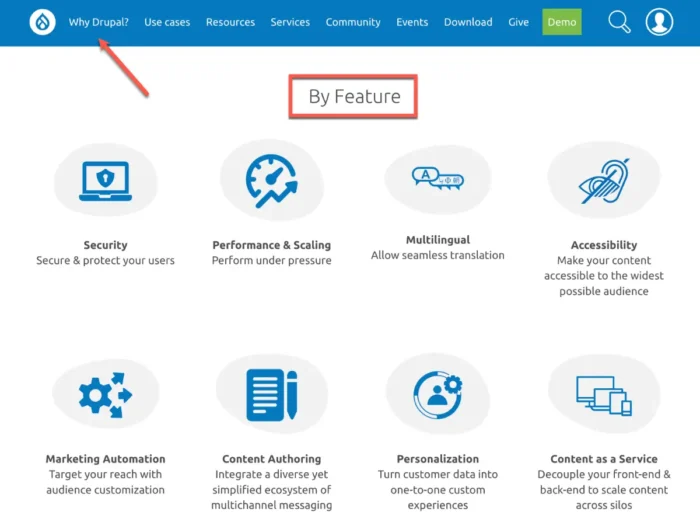
Additionally, CMS can be vulnerable to security risks if not correctly maintained and updated. Regular security updates and plugin maintenance are essential to ensure the website remains secure and protected against potential vulnerabilities.
eCommerce Website

If you want to sell products or services online, eCommerce platforms offer a great solution to manage all aspects of online selling.
Different eCommerce platforms like Shopify, WooCommerce, and Magento, provide pre-built templates, shopping cart functionality, payment gateways, and inventory management systems.
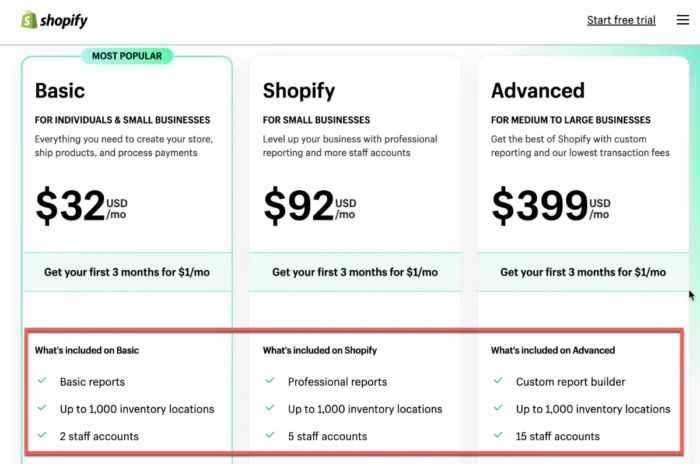
eCommerce platforms simplify the process of setting up an online store and offer features like product categorization, customer reviews, and order tracking. Choosing an eCommerce platform can save you time and effort if you want to sell products or services online.
Custom Web Solution

Custom web solutions involve building a website adjusted to your own business requirements from scratch. This approach offers complete control over design, functionality, and user experience.
Custom web design enables you to create a unique online presence that stands out from the competition with the help of some web development companies. However, these web solutions require more time, resources, and technical expertise.
The custom web solutions suit businesses with complex functionality requirements or unique branding needs.
Custom Web Applications

Custom web applications, or web apps, are designed and developed with a particular goal or set of functions in mind, unlike off-the-shelf software that comes with predefined features and functionalities. So, this is similar to software development but custom-based and working through the web like web apps.
A custom web app can allow your business to create a solution that suits your unique requirements perfectly. Whether it’s a tool for internal project management, a customer relationship management (CRM) system, or anything else, a custom web app can be built to perform exactly the tasks your business needs.
With a custom web app, you get a tool that’s designed to support your specific business processes. As your business grows, your custom web app can grow with it. New features and functionalities can be added as needed, ensuring your app stays a useful tool for your business. This web app can be designed to integrate without problems with your existing internal software and systems, reducing conflict and improving workflow.
By controlling every aspect of your web app, you can ensure it has strong security measures to protect your data and customers’ information.
An excellent example of a custom web app could be an inventory management system for a retail company. This web app could be designed to integrate with your company’s eCommerce platform, automatically updating stock levels as sales are made. It could also have features to predict future stock demands based on past sales data, helping you manage your inventory more effectively.
Benefits of Choosing the Right Type of Web Solution

Choosing the right type of web solution for your unique business needs can seriously impact your online success. Let’s explore some of the benefits of making the right choice:
Better User Experience
A well-designed website that aligns with your target audience’s preferences and expectations will provide a positive user experience. Whether it’s easy navigation, fast loading times, or an intuitive interface, the right type of solution can ensure that your visitors enjoy interacting with your website. This full user journey can lead to increased engagement, longer time spent on your site, and higher chances of conversion.
Better SEO Performance
The type of website you choose can also impact your website’s search engine optimization (SEO) performance. Search engines like Google consider factors like website speed, mobile responsiveness, and structured data when ranking web pages.
Dynamic websites, CMS platforms, and custom web design can offer advantages in terms of SEO optimization, allowing search engines to crawl and index your site more effectively.
Scalability and Flexibility
As your business grows, your website needs may change. Choosing the right type of development can ensure that your website is scalable and flexible to accommodate future needs. Custom development and CMS platforms are typically more scalable, allowing you to add new features and functionalities as your business evolves. This scalability can save you time and money in the long run by eliminating the need for frequent website redesigns.
Cost-Effectiveness
While custom development may require a higher upfront investment, it can be more cost-effective in the long run. Custom-built websites are tailored to your specific needs and in such a way, they eliminate the need for unnecessary features or functionalities. This targeted approach can result in a better website that performs efficiently and delivers value to your business.
Additionally, CMS platforms offer cost-effective solutions for companies that require frequent content updates but don’t want to invest heavily in custom development.
Factors to Consider When Choosing the Type of Web-Based Solutions for Your Business

You should consider several factors when you want to choose the right website for your business. Let’s explore these factors to help you make an informed decision:
Business Objectives
Consider your business goals and objectives when selecting a type of website.
Are you looking to create an online store, showcase your portfolio, or provide information about your services?
Understanding your business goals will help you identify the features and functionalities you require from your website.
Target Audience
Your target audience plays a crucial role in determining the type of web solution that will resonate with them. Consider their preferences, demographics, and browsing habits. So, conduct comprehensive market research to define your target audience clearly.
For example, choosing a mobile-responsive design or a mobile-responsive web app is essential if your target audience consists mainly of mobile users.
Budget and Resources
Evaluate your budget and available resources when choosing before you make a decision. Custom websites may require a higher initial investment, while CMS platforms offer more affordable options. Additionally, consider the expertise available within your team or the resources required to outsource the development.
Time Constraints
Consider the timeframe within which you need your website up and running. A custom website typically takes longer than CMS platforms or pre-built templates. If time is critical, choosing a faster deployment solution may be more suitable.
Long-Term Scalability
Consider your business’s long-term scalability when choosing the type of web solution. Will your website need to accommodate future growth and evolving needs? Custom websites and CMS platforms offer better scalability compared to static websites.
3 Types of Web Development Services
There are three types of most common web development services.
1. Front-end Development Services

Often referred to as client-side development, front-end development is all about what users see and interact with on a website. It’s the aspect of web development that deals with designing and developing the visible part of the website or web application.
Front-end developers adjust website logos, colors, icons, images, and related content. Furthermore, they must ensure that the website is displayed correctly when opened on each type of digital device. The correct display must be ensured for laptops, other mobile devices, phones, tablets, etc. Also, it should include the latest best practices to optimize the websites for search engines.
Front-end developers use coding languages like HTML, CSS, and JavaScript to create a website’s layout, design, and interactivity. They focus on user experience, ensuring the site is easy to navigate, aesthetically pleasing, and works seamlessly across different browsers and devices.
2. Back-end Development Services

While front-end development is concerned with the user-facing side of a website, back-end development, also known as server-side development, works behind the scenes to make everything on the front end function correctly.
This includes writing compatible code that provides logic to execute relevant tasks and maintaining the code to meet upcoming requirements.
For example, if you are an online retailer, the code written by the back-end devs will connect your website securely to the servers and safely process every transaction that the customer makes.
Backend developers work with databases, servers, and systems to ensure that data or services requested by the front-end system or software are delivered efficiently. Java, PHP, and MySQL are the conventional programming languages used for coding, whereas Python and Golang are great tools developers adopt due to their effectiveness.
✋ Warning
Finding the right Python development team can be a game-changer 🚀 Read this article for expert advice on making the best decision!
3. Full-Stack Development Services

Full-stack development is a combination of both front-end and back-end development. A full-stack developer has the skills and knowledge to work on both the client-side and server-side of web development, meaning they can build a website or web application from start to finish. They understand how the web works at every level, from setting up and configuring servers to coding server-side APIs, designing and building user interfaces, and optimizing for SEO.
Full-stack development can easily handle website design, coding, optimization of the interface, and connecting the website securely to the servers. As the development industry grows, you can find white-label web development services to fulfill your website development requirements. At the same time, you focus on other aspects of the business. However, in-depth research on your requirements and the market is necessary before choosing a service like this.
Most industry pros in the development industry suggest that besides having front-end and back-end development abilities, you need to check other capabilities. For example, the type of developer you pick should have a strong knowledge of programming languages. Especially in UI/UX design, databases, and, most importantly, the ability to identify cutting-edge technologies and use them when required.
Tips for Choosing a Web Development Services

Before you choose one from many available web development services, it is essential to specify your requirements. Depending on the type of business and what you are offering, choose a website or web app, determine the level of services you might require, and choose the relevant details you want on your website or web app before contacting a web developer. When you know your requirements, you can consider the following tips to help you make the best choice.
Decide on details of your website
You have to decide on relevant details of your website or web app, like the type you want to use before you start searching for web development services. You want to know if you need something like custom web applications or some specific types of web or mobile apps or if CMS will do the job according to your requirements before you start searching for a web development partner.
Do your research and think of the things you, as a customer, might want to be included. You will need different website development services based on what your needs are and what you want.
For example, websites often take a lot of time to load up, creating a negative experience for the user that a web developer can easily eliminate. Later, you can discuss these concerns with the web development company before you sign up for their services.
For an impressive website that engages users and delivers a seamless experience across various devices, it’s essential to check out a professional front-end web development service. Their expertise in adjusting logos, colors, icons, images, and content, combined with their knowledge of responsive design and optimization for search engines, ensures that your website will leave a lasting impact on visitors.
✋ Warning
💡 Expertise matters! See how a Java Application Development Company can elevate your business with high-quality app development.
Check the web development company portfolio

Check the web development company portfolio on the internet. You want to determine whether they will help you in your niche.
Furthermore, ask whether their web development team has worked on similar projects. Also, visit the websites they have already made to check their services manually. Don’t forget to check the compatibility of the websites on different devices. You want to ensure you are dealing with the right professionals.
If your project’s requirements are related to the development of web apps, check if they have experience and are there inside their portfolio for such a project.
Also, you can find details about their web development process on their website. This is important to check and see if these processes fit with your current processes.
Meet with the agency representatives

You can request a meeting with the web development companies to discuss your project. Ask about more explanations related to their web development process, web technologies they are using, possible outcomes, timeframe for your projects, etc.
Also, you can ask about a web designer and project manager, their experience, and background to check if they are compatible with your web-based solution, no matter if you need eCommerce development or web application development. Simply, you want to know as much as possible about their web development team.
Another important thing you must ask is about possible maintenance services and how much long they will be covered after they finish your entire project first.
An experienced web development firm will always respond to you adequately and try to guide you through the whole web development process, whereas the sketchy ones might not even agree to a meet-up in the first place.

Conclusion
The development industry is evolving with cutting-edge technologies to make the online experience as smooth as possible. Staying in touch with the latest developments will also help significantly when looking for developers. It is always best to research independently, get recommendations, read reviews, and contact several web developers to get a good picture of the entire process before hiring them for their web products and services.
When it comes to web development or web-based software development, choosing the right type for your business needs can make all the difference in the digital world. With various options available, it’s essential to understand which approach will align best with your brand’s goals and target audience. Whether you’re seeking a dynamic and interactive website, web application development, or a simpler and more straightforward design, finding the perfect development company is crucial to creating a successful online presence.



